TIFS Sees Shift Toward Domestic Market
Local furniture makers take advantage of opportunities at home
2013/09/04 | By Michelle Hsu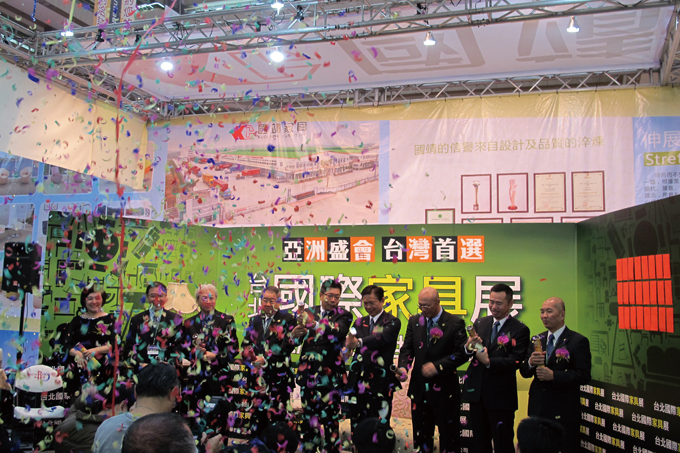
This trend reflects the adjustment from an export orientation to an increasing emphasis on domestic sales. Ruca Chien, chairman of the Taiwan Furniture Manufacturers Association (TFMA), regards this as an appropriate change, citing China's former paramount leader Teng Hsiao-ping: “It doesn't matter if a cat is black or white, so long as it catches mice.” Similarly, no matter export or domestic sales, it's good as long as there are business opportunities. In other words, it doesn't matter if sales are export or domestic, so long as they produce revenue.
In view of rising operating costs and the declining blue-collar work force in Taiwan, Chien believes that export-oriented manufacturers would be well advised to have a go at the domestic market, where demand is relatively small but very diverse. “They only need to set aside a small portion of their products for domestic consumers,” Chien commented.
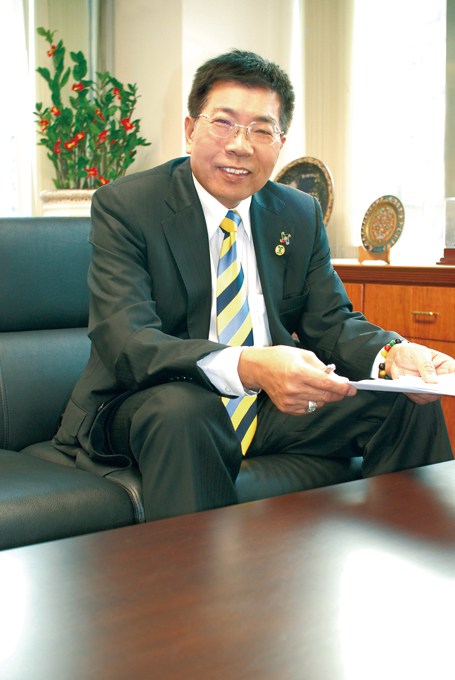
To help Taiwan's furniture makers explore international market, Chien reports, the TFMA organizes groups to take part in major foreign furniture shows every year. In the future it might cooperate with foreign furniture associations in the exchange of delegations to participate in exhibitions organized by the cooperating groups. This, Chien notes, would encourage Taiwanese manufacturers to participate in international activities on the one hand, and bring more international exhibitors to TIFS on the other hand, giving the exhibition a more international flavor.
International Exhibits
A good many foreign brand products could be seen at this year's TIFS, such as bronze inlaid mahogany furniture from Pakistan that featured fine workmanship rendered in a classical style. There was also an Indian agent exhibiting carved wooden furniture, crafted to reveal the consummate skill and delicate craftsmanship of the maker.
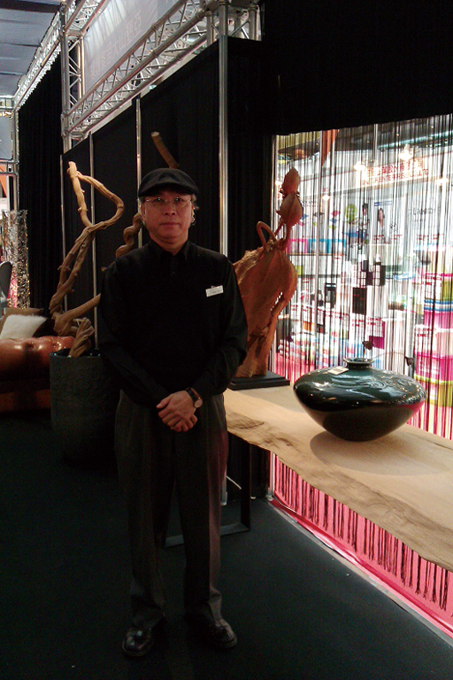
A pink single-seat sofa displayed by OZZO also attracted much attention. With a three-dimensional jacquard velvet chair back decorated with small embroidered flowers, coupled with leather seat and carved metal chair legs, it appeared refined and elegant, and had a bold and eye-catching shape.
After manufacturing wooden furniture for many years, the OZZO group switched to being an agent for quality French and Italian furniture products. In recent years, however, it has shown a strong interest in promoting the works of local designers. “Many local designers possess profound skills, but have no outlet through which to express them,” said the group's chairman, Walter Chiang. To address that issue the group plans to organize the AA Alliance (Apprentice Alliance) as a platform where local designers can show off their new products, while at the same time providing them with marketing channels. Company's CEO, Ivan Chiang, has been charged with planning and executing the AA Alliance idea.
The OZZO booth at TIFS this year displayed examples of the works of local potters and sculptors, complementing the modern Western furniture on show and blending Chinese and Western cultures.
Marketing Strategies
Export and domestic marketing strategies vary widely. The most obvious difference is that the former is directed mostly at foreign importers who play the role of intermediaries, while the latter is for the most part predicated on the demand of individual local consumers. The shift toward a domestic orientation could be discerned at this year's TIFS.
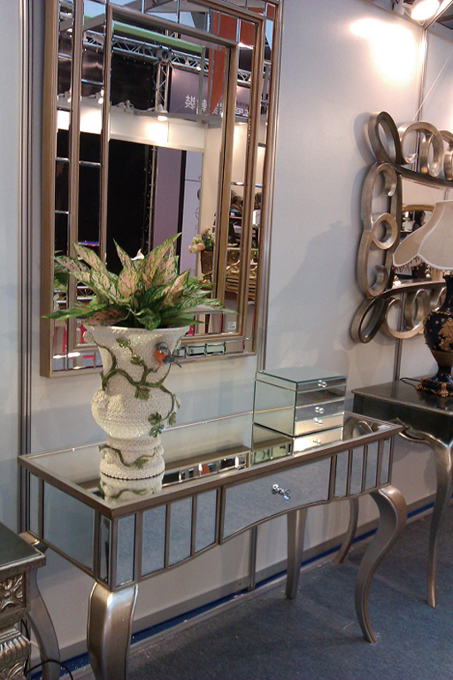
To differentiate itself from other Taiwanese furniture makers, which concentrated on dinettes or bedroom sets, from the beginning Homedecor chose to focus on making hanging mirrors and complimentary side tables.
“We make decorative home furniture, not the kind found in every house, and this can be regarded only as a minor category within the domain of home furnishings products,” said the company's vice general manager, Andrew Chen. With a lack of intense competition within this small niche, Homedecor's specialization enabled it to grow rapidly.
To appeal to the international market, Homedecor employs foreign and domestic designers that create around 50 new styles every year to meet the differing tastes and needs of various consumer groups. The company has also launched its own “Homelody” brand.
“Hanging mirrors and their complimentary side tables are decorative products, and their prices are generally lower than those of dinettes, bed sets, kitchen cabinets, and other major furniture items,” Chen observed. “This allows many European and American families to replace these items to give their home a new look every couple of years, providing stable market demand to this kind of product.”
Having gained a firm footing on the international market, the group took its first step into the domestic market by exhibiting at TIFS this year. Being somewhat unfamiliar with the domestic market, it did so through an agent.
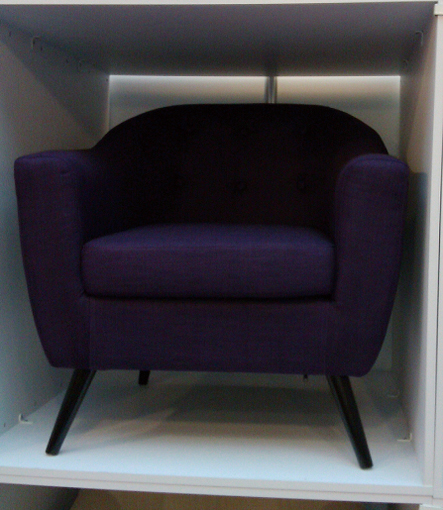
Woei Horang was another new exhibitor this year, also with a view to expanding sales in the domestic market. The company had previously concentrated mainly on exports, with Japan as its primary market. At this year's TIFS, the company displayed a variety of lounge chairs designed for use in hotel rooms.
Company official Sara Chuang noted that when Woei Horang decided last year to develop the domestic market, it thought about how to differentiate itself from other vendors and searched for products suitable for development. After some time it decided that initially the main focus should be on producing single-seat lounge chairs for use in hotel rooms, a strategy designed to take advantage of Taiwan's recent boom in hotel construction in response to the increasing number of tourists from China.
This kind of furniture emphasizes customized design. As the styles and shapes required for each hotel are different, there is a great deal of room for innovation.
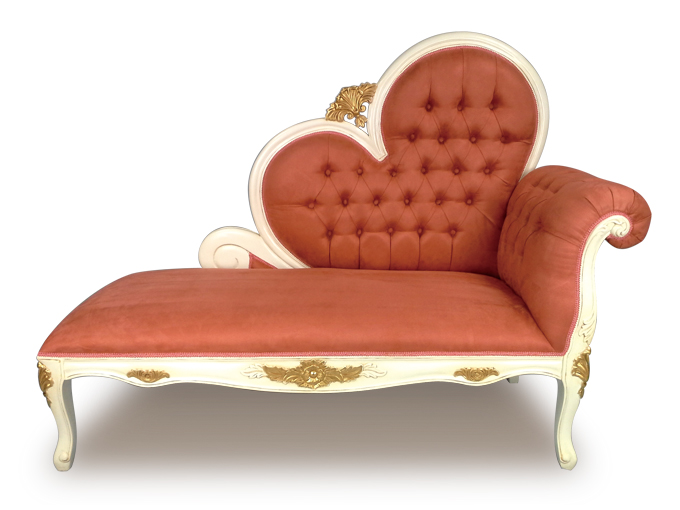
Another incentive for Yuan to go into furniture was the booming trend of industrial design in Taiwan. With Yuan as its furniture designer, Jian Teng introduced a variety of European-style furniture of its own design at the exhibition--chairs with velvet inlay on white painted wooden backgrounds, for example, expressed a courtly European atmosphere. The company produces mostly individual chairs, both single- and double-seaters, which users can arrange freely in their homes to express their own personal style.




